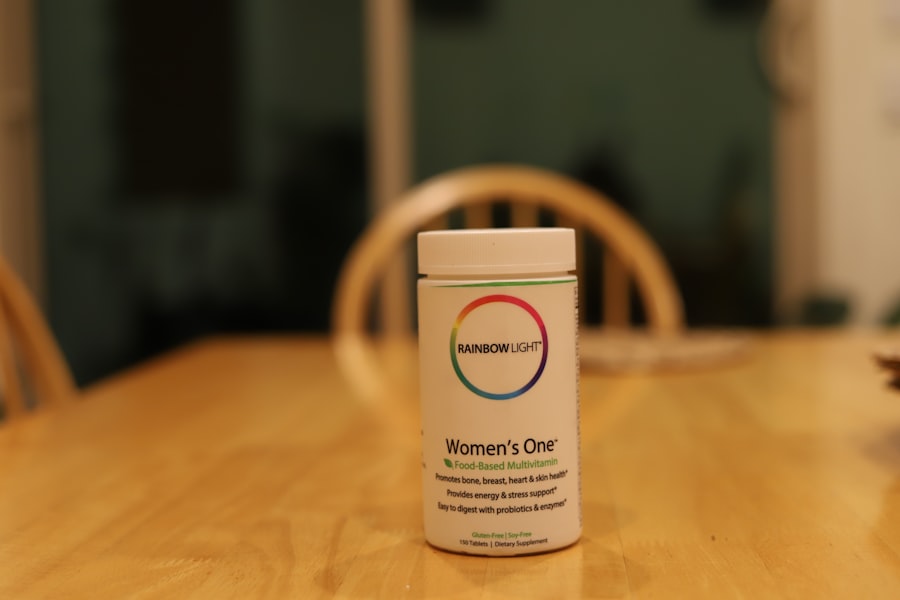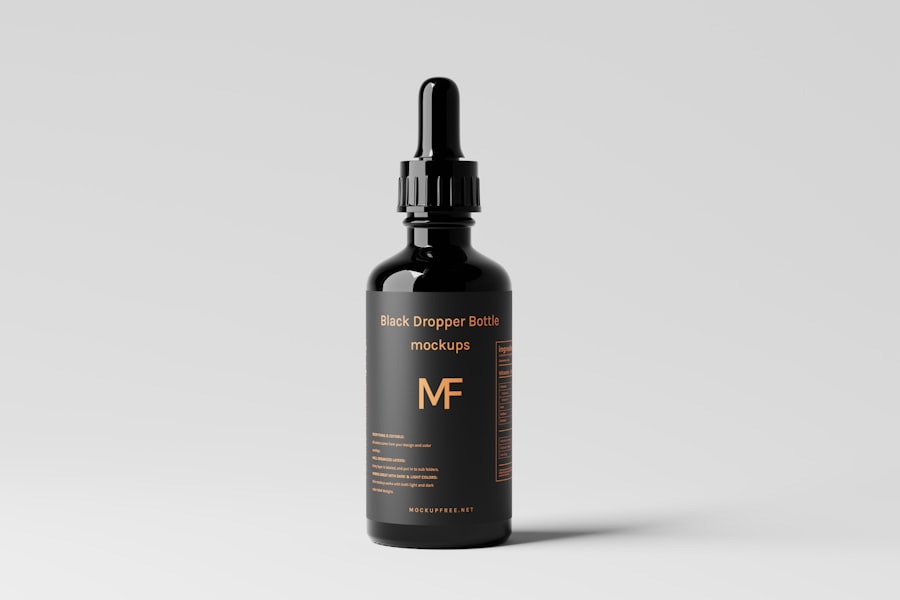Melatonin, a hormone primarily produced by the pineal gland in the brain, plays a crucial role in regulating sleep-wake cycles. It is often referred to as the “sleep hormone” due to its significant influence on circadian rhythms. As darkness falls, melatonin levels rise, signaling to the body that it is time to prepare for sleep.
Conversely, exposure to light inhibits its production, promoting wakefulness. This natural cycle is essential for maintaining healthy sleep patterns and overall well-being. In recent years, melatonin has gained popularity as a supplement, particularly among those struggling with sleep disorders or irregular sleep patterns.
The increasing interest in melatonin has led to a surge in its availability in various forms, including tablets, gummies, and liquid solutions. While many individuals turn to melatonin supplements to address sleep issues, it is essential to understand the differences between these supplements and pharmaceutical options available in Europe. The landscape of melatonin use is complex, influenced by varying regulations, effectiveness, safety profiles, and costs across different countries.
This article aims to explore these aspects in detail, providing a comprehensive overview of melatonin and its implications for those seeking better sleep.
Key Takeaways
- Melatonin is a hormone that regulates the sleep-wake cycle and is produced naturally in the body.
- Benefits of melatonin include improving sleep quality, regulating circadian rhythms, and reducing the effects of jet lag.
- Melatonin supplements are available over the counter in Europe, while melatonin drugs require a prescription.
- Melatonin supplements and drugs have different regulations in Europe, with supplements being less strictly regulated.
- Research suggests that melatonin supplements and drugs are equally effective in improving sleep, but drugs may have a more immediate effect.
Benefits of Melatonin
Melatonin offers a range of benefits beyond its primary role in promoting sleep. For many individuals, it serves as a natural remedy for insomnia and other sleep-related disorders. Research has shown that melatonin can help reduce the time it takes to fall asleep, improve sleep quality, and increase total sleep duration.
This is particularly beneficial for those who experience difficulty falling asleep due to stress, anxiety, or irregular work schedules. Additionally, melatonin has been found to be effective in alleviating symptoms associated with jet lag, helping travelers adjust more quickly to new time zones. Beyond its sleep-inducing properties, melatonin is also recognized for its potential antioxidant effects.
Studies suggest that melatonin may help protect cells from oxidative stress and inflammation, contributing to overall health. Furthermore, emerging research indicates that melatonin may play a role in regulating mood and supporting mental health. By promoting better sleep and potentially enhancing mood stability, melatonin can contribute to improved quality of life for many individuals.
Melatonin Supplements in Europe

In Europe, melatonin supplements are widely available and can be found in various forms, including over-the-counter options in health food stores and pharmacies. However, the regulations surrounding these supplements vary significantly from country to country. In some nations, such as the United Kingdom and Germany, melatonin is classified as a dietary supplement and can be purchased without a prescription.
This accessibility has made it a popular choice for individuals seeking natural solutions for sleep disturbances. Conversely, other European countries have stricter regulations regarding melatonin supplements. For instance, in France and Italy, melatonin is classified as a medication and requires a prescription for purchase.
This discrepancy in regulation can create confusion for consumers who may be unaware of the legal status of melatonin in their respective countries. As a result, individuals seeking melatonin supplements should familiarize themselves with local regulations to ensure they are making informed choices.
Melatonin Drug Options in Europe
| Country | Available Melatonin Drug Options |
|---|---|
| United Kingdom | Over-the-counter (OTC) melatonin supplements |
| Germany | Prescription-only melatonin medications |
| France | Prescription-only melatonin medications |
| Spain | Over-the-counter (OTC) melatonin supplements |
In addition to supplements, melatonin is also available as a pharmaceutical drug in various European countries. These prescription medications typically contain higher doses of melatonin than over-the-counter supplements and are often used to treat specific sleep disorders such as insomnia or delayed sleep phase disorder. The availability of prescription melatonin varies by country; for example, in some regions, it may be prescribed for short-term use while others may allow for long-term treatment.
Prescription melatonin drugs are often formulated to provide controlled-release effects, allowing for a more gradual release of the hormone into the bloodstream. This can be particularly beneficial for individuals who struggle with maintaining sleep throughout the night. By providing a steady supply of melatonin, these medications aim to enhance overall sleep quality and address specific sleep-related issues more effectively than standard supplements.
Differences in Regulation for Supplements and Drugs
The regulatory landscape for melatonin varies significantly between supplements and pharmaceutical drugs across Europe. Supplements are generally subject to less stringent regulations than prescription medications. In many countries, dietary supplements are classified as food products rather than drugs, which allows for easier access but may also lead to variability in quality and potency among different brands.
On the other hand, pharmaceutical drugs undergo rigorous testing and evaluation before they can be approved for use. This process ensures that prescription melatonin products meet specific safety and efficacy standards.
Effectiveness of Melatonin Supplements vs Drugs

When considering the effectiveness of melatonin supplements versus prescription drugs, it is essential to recognize that individual responses can vary widely. Some individuals may find relief from their sleep issues using over-the-counter supplements, while others may require the higher doses or controlled-release formulations found in prescription medications. Research indicates that both forms can be effective in promoting sleep; however, the degree of effectiveness often depends on the specific sleep disorder being treated.
For instance, studies have shown that melatonin supplements can be beneficial for individuals experiencing jet lag or mild insomnia. However, those with more severe sleep disorders may find that prescription medications provide more significant improvements in sleep quality and duration. Ultimately, the choice between supplements and drugs should be guided by individual needs and preferences, as well as consultation with a healthcare professional.
Safety and Side Effects of Melatonin Supplements vs Drugs
Safety is a critical consideration when evaluating melatonin supplements and prescription drugs. Generally speaking, both forms are considered safe for short-term use; however, potential side effects can occur with both options. Common side effects associated with melatonin include drowsiness, dizziness, headache, and gastrointestinal discomfort.
These effects are typically mild but can vary based on individual sensitivity and dosage. Prescription melatonin medications may carry additional risks due to their higher dosages and potential interactions with other medications. It is crucial for individuals taking other medications or those with underlying health conditions to consult with their healthcare provider before starting any form of melatonin.
This ensures that they receive personalized advice regarding safety and potential interactions based on their unique health profiles.
Cost Comparison of Melatonin Supplements and Drugs
Cost is another important factor when considering melatonin options in Europe. Over-the-counter melatonin supplements are generally more affordable than prescription medications. Prices can vary widely depending on brand, formulation, and dosage; however, many consumers find that they can purchase a month’s supply of supplements at a fraction of the cost of prescription drugs.
In contrast, prescription melatonin medications may involve additional costs such as doctor visits or consultations before obtaining a prescription.
Therefore, individuals should weigh their budgetary constraints alongside their health needs when deciding between these two options.
Availability of Melatonin Supplements and Drugs in Europe
The availability of melatonin supplements and drugs varies across Europe due to differing regulations and market practices. In countries where melatonin is classified as a dietary supplement, consumers can easily find it in pharmacies, health food stores, and online retailers without needing a prescription. This accessibility has contributed to its popularity among those seeking natural remedies for sleep disturbances.
Conversely, in countries where melatonin is regulated as a medication requiring a prescription, access may be more limited. Individuals must first consult with healthcare professionals to obtain a prescription before they can purchase these products at pharmacies. This regulatory approach aims to ensure that patients receive appropriate guidance regarding dosage and potential interactions with other medications.
Considerations for Choosing Between Melatonin Supplements and Drugs
When deciding between melatonin supplements and prescription drugs, several factors should be taken into account. First and foremost is the severity of the sleep issue being experienced; individuals with mild insomnia or occasional sleep disturbances may find sufficient relief from over-the-counter supplements. In contrast, those with chronic or severe sleep disorders might benefit more from the targeted approach offered by prescription medications.
Additionally, personal preferences regarding cost, convenience, and potential side effects should also play a role in decision-making. Some individuals may prefer the ease of obtaining supplements without a prescription, while others may prioritize the assurance of safety and efficacy provided by regulated pharmaceutical options. Consulting with a healthcare professional can help clarify these considerations and guide individuals toward the most suitable choice based on their unique circumstances.
Making an Informed Decision
In conclusion, navigating the world of melatonin—whether through supplements or prescription drugs—requires careful consideration of various factors including effectiveness, safety profiles, costs, and availability across Europe. While both options offer potential benefits for improving sleep quality and addressing sleep disorders, individual responses can vary significantly based on personal health needs and circumstances. Ultimately, making an informed decision involves weighing the pros and cons of each option while considering personal preferences and consulting with healthcare professionals when necessary.
By doing so, individuals can take proactive steps toward achieving better sleep health while ensuring they choose the most appropriate solution tailored to their specific needs.
In recent years, the debate over the classification of melatonin as a supplement versus a drug has gained significant attention in Europe. This discussion is crucial as it impacts how melatonin is regulated, marketed, and consumed across different countries. For a deeper understanding of this topic, you can explore a related article that delves into the nuances of melatonin’s classification and its implications on public health and regulatory practices. To read more about this, visit this article on HeyDidYouKnowThis.
WATCH THIS! 👀Why These 30 American Products Are Immediately Illegal In Europe
FAQs
What is melatonin?
Melatonin is a hormone that is naturally produced by the pineal gland in the brain. It helps regulate the sleep-wake cycle and is often used as a supplement to improve sleep.
What are melatonin supplements?
Melatonin supplements are synthetic forms of the hormone that are available over the counter. They are commonly used to help with sleep disorders and jet lag.
What are melatonin drugs in Europe?
In Europe, melatonin is classified as a drug and is available by prescription only. It is used to treat sleep disorders such as insomnia and delayed sleep phase syndrome.
What are the differences between melatonin supplements and melatonin drugs in Europe?
The main difference is the legal classification and availability. Melatonin supplements are available over the counter, while melatonin drugs in Europe require a prescription. The dosage and formulation may also differ between the two.
Are there any potential risks or side effects of using melatonin supplements or drugs in Europe?
Both melatonin supplements and drugs in Europe can cause side effects such as drowsiness, headache, and dizziness. It is important to consult with a healthcare professional before using either form of melatonin, especially if you have any underlying health conditions or are taking other medications.
Which form of melatonin should I use?
The decision to use melatonin supplements or drugs in Europe should be made in consultation with a healthcare professional. They can help determine the appropriate form and dosage based on individual needs and health status.
